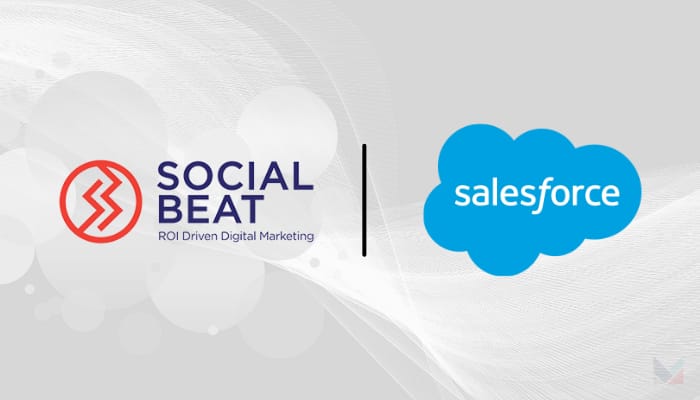When companies are operating outside of normalcy, it is more critical than ever for marketers to have a strong grasp on changing circumstances and the evolving demands and expectations of their customers and their businesses. To navigate through periods of uncertainty and beyond, marketers need to create a robust marketing measurement strategy– one that is shaped by data-driven decisions, in order to be able to understand their performance and pivot their marketing strategies if something isn’t quite working. Marketing intelligence is the key ingredient to an effective measurement strategy. Through a single system of record, marketing intelligence platforms provide the insights and analytics needed to drive informed decisions.
A recent study revealed that 65 percent of marketers face moderate to significant budget cuts as a result of disruption caused by the COVID-19 pandemic. While many displayed cuts between 10 to 20 percent, some reported deeper cuts, especially in industries where demand has decreased. With budgets fluctuating, having visibility over marketing activities across all channels can help marketers see the efficiency and effectiveness of every dollar spent. A clear view across all moving parts enables marketers to consistently adapt and reevaluate goals.
Additionally, customers are dealing with disruptions to their day-to-day life, causing behaviors and expectations to shift. For example, the consumer goods industry has seen vast changes in shopping behavior first-hand. Customers are prioritizing purchasing necessities and home entertainment products. Categories such as food, beverage and tobacco, toys and games and sporting goods were in top five for growth in page views and order count. While, luggage and bags saw a 14 percent decrease in page views due to travel restrictions. To respond appropriately to these shifts and deliver engaging and helpful experiences to address changing preferences, it is important that marketing teams double-down on measuring tactics, messages and content across all touchpoints.
Here are four key steps to building a measurement strategy that can guide marketers through this volatile time and into the future:
- Connect cross-channel data
The modern-day marketer uses a number of different channels to connect with customers, making it complex to keep track of the effectiveness and performance of a single campaign. From Facebook to LinkedIn to Google ads, the sources are endless. The dispersion of marketing data across different touchpoints means it ends up both siloed and inaccessible. In today’s landscape, where marketing teams are challenged with fluctuating budgets combined with changing behaviors of customers, they need to be as efficient as possible with their time and ad dollars.
Harmonizing data into a single source of truth gives marketers a cohesive view of the information they have at hand. Cutting man-hours spent bringing data together can be achieved by automating the process. This enables marketers to spend less time organizing data and more valuable time on campaign analysis and optimization.
2. Set up consistent taxonomies and ensure data hygiene
Organizing and standardizing data is a crucial step in order for marketers to gain actionable insight. This involves formulating rules and naming conventions to dictate campaigns and media buys.
When data is derived and categorized in the same solid foundation, it can be used more accurately and consistently. This is key to gaining data accuracy– something that 84% of marketers lack confidence in. By having all stakeholders work from a set of standardized data, teams can seamlessly report and share findings, as well as scale insights to launch new initiatives.
3. Set goals and track progress
Now more than ever, the marketing landscape is impacted by the disruptions taking place across economics, politics, public health and more. Marketers must act swiftly and be flexible in the way they respond to, plan for and adjust to this new environment.
Marketers can use this time as an opportunity to reset goals and benchmarks. Setting goals builds accountability and urgency, and helps identify and monitor specific key performance indicators (KPIs) across channels, regions and business units. Benchmarks such as industry standards and competitive benchmarks are helpful ways of allowing teams to track how campaigns are progressing toward these goals.
4. Align and collaborate across a single system of record
With organizations adopting remote working, marketers need to overcome the geographical silos and team silos to stay aligned. With data connected and standardized across a single system of record, marketers can visualize goals and benchmarks through shareable dashboards. This enables internal and external stakeholders to collaborate and work toward shared goals.
Moreover, marketers should adapt visualizations to tell the right story based on the audience. For example, the chief marketing officer and the executive team may be more interested in key KPIs that impact the broader business, while channel marketers may require a closer look at each tactic or data, broken down day by day, across creative, messages and more.
By creating a marketing measurement strategy, marketers can arm themselves with the data and insights they need to help answer difficult questions and pave the path to certainty for their customers and their businesses.
The author is Leah Pope, Chief Marketing Officer of Salesforce Datorama. Salesforce Datorama provides the leading cloud-based, AI-powered marketing intelligence and analytics platform for enterprises, agencies and publishers.
If you want to be part of MARKETECH Experts Group, please click here.






